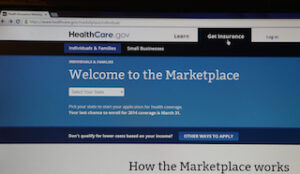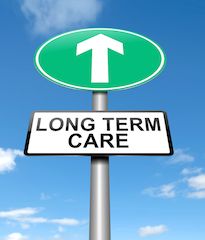I would never knock the enthusiasm of any producer in any particular market, because the fact of the matter is that if someone is selling a lot, they typically have tons of passion about what they’re selling. Having said that, there’s something uniquely passionate about the successful disability insurance (DI) producer.
I recently talked to two of the nation’s leading disability insurance producers about the state of their business in particular and the broader DI market in general, and that passion is evident in our discussions. Irwin C. Cohen, founder and president of Affiliated Financial Specialists, Ltd., and John F. Nichols, MSM, CLU, DIA, president of Disability Resource Group, Inc., are two of the finest DI producers in the business today, and they were both gracious enough to share their thoughts on where we are with DI today, where DI is headed, and how other producers can make this market their own.
I started the conversation by asking about their respective starts to 2014, and how their first-quarter results looked. I also asked specifically about whether they were ahead or behind where they had projected themselves to be. Mr. Cohen told me, “The first quarter of 2014 has been a strong quarter. We are a little bit ahead of last year. The main reason we’re ahead is simply from being in motion and producing and being focused. With a high level of focused activity, good things tend to happen and production grows. I’d like to be much further ahead than we are, but business is good.”
Mr. Cohen continued, “In your question to me, you asked if I was behind, and if I were behind, why would I think that is. Well, I’m fortunate not to be behind. I think the main reason a producer might be behind would come down to activity and work habits. The nature of this business is cause and effect. When the producer makes a lot of calls with the intention of helping people, good things happen and production will grow, assuming the producer is focused and reasonably good at what he or she does.”
In response to the same question, Mr. Nichols said, “My first-quarter results have been flat compared to last year. We are where we expected to be after a strong close to 2013. The pipeline is filling up; however, there is always room for more.”
After establishing where there business currently stood, I asked them to share a little about why and how they entered the disability insurance business. Mr. Nichols told me, “There are a few reasons why I came into the disability insurance market and remain committed to the area. First, a mentor of mine introduced me to the market and worked with me in developing the business.
“Second, after suffering a catastrophic accident that left me disabled, I learned first-hand the value of the product. Disability insurance gave me the choice and control over my medical care and rehabilitation, which provided me the best chance of potential recovery, and the ability to return to work and live out my dreams and goals.
“Third, today the market opportunity has never been better. There are more people in the workforce who could benefit from the insurance – by 2015 there will be 56 million Millennials — sometimes referred to as Generation Y — working in the United States. Healthcare reform has heightened the awareness and created the opportunity to have the conversation regarding one’s health plans beyond just medical insurance.”
The reason Mr. Cohen entered the disability involved some serious personal reflection and honest business analysis. “The reason I went into the disability business originally had to do with building renewal income,” Mr. Cohen told me. “Early on in my career, I observed that I wasn’t very good at what I was doing. It was an uncomfortable place to be, to come face to face with the reality that I was not very good in my industry. And I realized that the only thing that was going to save me was if I worked harder than anyone else. If I was willing to do that over time, I could build a block of disability business. Even though I couldn’t produce a whole lot of business at that point in time of my career, there were substantial renewals from this business that would grow and I would be able to earn a good living.”
These two top producers are at the cutting edge of the disability insurance market, so I asked them their thoughts on today’s most exciting developments in the market. “In terms of developments in the disability insurance business,” Mr. Cohen told me, “I see demographic changes, consumer awareness, and other factors. On a very positive note, the products are better today than they’ve been. Limits are higher, and underwriting has gotten much better than it was even a decade ago. Those are all positive things. Demographic changes have affected business, I think. From 2007 going forward, with the downturn in the economy, people losing their jobs, people having losses in their portfolios, and their real estate holdings being turned upside down, a lot of people have come face to face with the fact that they need to protect their ability to make a dollar. If they can’t do that, there is no solution to their personal financial challenges. For example, if a 50-year-old professional had $5 million in his portfolio and was making $300,000 an year, and now, because of the stock market, he only has $2.5 million and his income’s gone down to $250,000 year, he’s feeling much more vulnerable and much more willing to listen to ideas about how he can protect himself.”
Mr. Cohen continued, “I don’t think consumer awareness is better today, when you consider that years ago in 1977, when I began selling disability insurance, we had in excess of 500 carriers and many, many more salespeople selling disability insurance. And that spread the word. I think consumer awareness is not good. It is neutral at best, and perhaps even on the decline.
“On factors I believe are good for the business, as I mentioned earlier, the downturn of the economy has woken people up. Also, people losing jobs and finding out they don’t have benefits has awakened people.”
Mr. Cohen concluded, “I think the carriers need to do a better job of recruiting and training people to sell not only disability insurance but other financial service protection related products as well.”
Mr. Nichols sees some exciting developments as well. “The disability insurance carriers have made it easier – the process, the underwriting, and even the product sales tools,” he told me. “As I mentioned earlier, the size of the marketplace is growing. The younger demographic is as big as the Baby Boomer generation. They need and want to be educated so they can make informed decisions about their health and finances. Society has shifted to the ‘iworld’ to include health and fitness, etc. The consumer has been primed to have the conversation in part because of discussion, debate, and implementation of healthcare reform.”
So, if those are the positive developments, where are the challenges? I asked about the areas of the business that are causing them the most concern. Mr. Nichols said, “My biggest concern for the DI business is that there are not enough advisors educating their clients on the value of the insurance. Many advisors wait until the consumer asks.”
Mr. Cohen had an interesting point regarding why his job is becoming more difficult. “With regard to areas that are causing my greatest concern, I see problems in two specific areas. First, the industry is not growing. There are not enough people coming into the business selling disability insurance and advising clients on disability insurance. And second, there are not enough companies in the market. These two things are of great concern. Competition is truly good for business, and a small market with few players and few salespeople make my job harder, not easier.”
These two top producers are experienced, and they’ve learned a lot as they’ve grown their businesses. With that high experience level in mind, I asked about what they might advise the younger, less-experienced producer who wants to write more disability insurance. “To the younger producer who’s looking to ramp up the amount of DI business he or she is generating,” Mr. Cohen said, “I would advise him or her to focus on disability perhaps as a specialty. But to get good at any given industry, the agent needs to go to the ‘school of transactions.’ What I mean is this — maybe it takes 100 or 200 or 300 transactions before the agent really gets a feel of knowing something. So the young producer needs to put his or her nose to the grindstone, drill down, and set a goal of doing the ‘big number’ of disability insurance cases every year. And then I would say, once he or she has written $250,000 or so of premium, sit back and reflect. See if you like it, see if it’s good. I guarantee the young producer that if he gets to that point, he’ll never look back. The producer will have a high level of confidence in his ability to sell it, and he’ll be thrilled by amount of renewals he’ll generate.”
Mr. Nichols shared some advice as well. “Here are three suggestions for the younger producer who is interested in the disability insurance market,” Mr. Nichols said. First, educate yourself – own it, study the policy language, and learn the client conversation. Watch and internalize the stories at www.lifehappens.org. Feel the impact that this product can have on clients and their loved ones.
“Second, connect with a mentor – an advisor who specializes in the market, a brokerage general agent who focuses on the market, or a disability insurance carrier representative. They can help you learn the product, the market, and the strategies to be successful.
“Third, have the conversation with your clients and prospects. Speak with everyone about protecting their income, their dreams, and their goals. Ask the questions. You will make a difference in your clients’ lives as well as your own.”
Finally, I encouraged them to share any additional points about the DI market. “There is tremendous opportunity in the disability insurance market,” Mr. Cohen said, “because there are not enough salespeople in the market and there are a lot of people who need to protect their income. There is no greater asset for most of us than the ability to protect our income. Let me give you this example. I suspect that when Warren Buffet wakes up in the morning, whether or not he goes to work really doesn’t matter because he has money, capital, principal at work. Most people aren’t in that position. Most people have their incomes, and their incomes pay the bills, pay the mortgage, put money in a retirement fund, put money in a college fund, and take their spouse on a holiday. There is no greater gift than helping someone protect their income. The opportunities here are immense. The blind spot, if you will, is that in order to capture these opportunities, the producer has to be willing to work incredibly hard, earn his or her way, and pay the price for success.”
Irwin C. Cohen is a 36-year veteran of the retail insurance industry, beginning at age 20 selling accident insurance door-to-door. For the past two and a half decades he has specialized in disability income protection and long-term care insurance, primarily working in the professional market. He is a five-time speaker at the Million Dollar Round Table. He is a qualifying member of the Top of the Table. He is the author of the MDRT’s best-selling audio disk, How to Make Top of the Table Selling Long-Term Care. Mr. Cohen’s practice and home are in Chicago, Illinois, where he lives with his wife Melissa and their daughter Mira6
John F. Nichols, MSM, CLU, DIA, is president of Disability Resource Group, Inc., a national insurance agency he founded in 1999. He is currently NAIFA President, and a life and qualifying member of MDRT. Mr. Nichols is also involved in SFSP and AALU. As a nationally recognized speaker at an array of national meetings, Mr. Nichols has established himself as a foremost authority on disability insurance.
Charles K. Hirsch, CLU, is executive editor of Insurance Forums. He is also the president of Hirsch Communications Consulting, LLC, a communications consulting operation in Florissant, Missouri. For many years, Chuck was the editor and publisher of Life Insurance Selling magazine and wrote the monthly column, What’s Going On in the Life Insurance Business. From 1999 to 2008, he was the publisher of several of the leading industry magazines in the life insurance, property/casualty insurance, and mortgage markets. These days, Chuck’s firm specializes in the development and execution of many kinds of communication strategies, particularly in the financial services business.











